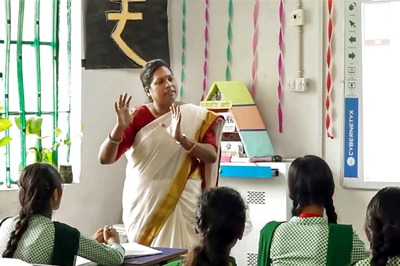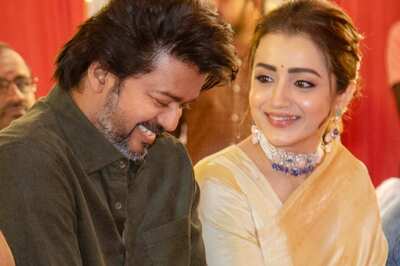
views
In the run-up to the Bihar Assembly elections, there were few instances which did not miss attention of many. Samajwadi Party chief Mulayam Singh Yadav, who was one of the initiators of Mahagathbandhan - the Grand Alliance - decided to quit the same before it actually took off, citing no reason in particular.
Similarly, an 'intolerance' campaign started circulating from nowhere and soon there was a rush of artists and writers returning Sahitya Academy awards, Padma Awards and National Film Awards as a mark of protest against the perceived intolerance. Information was not available whether all of them returned the cash prize that goes with the award, with or without interest, but adequate coverage was given by section of the media, notably on national television channels. The coverage was given for their righteous indignation and consternation with regard to the supposedly 'abhorrent intolerance' swirling around the country.
Some felt suffocated in the wake of the death of Prof MM Kalburgi, who was murdered in Dharwad in Karnataka in broad daylight at his home by unidentified assailants. Kalburgi's murder was heinous and most regrettable to say the least, but it happened in Karnataka whose jurisdiction comes under the ruling Congress government under Chief Minister Siddaramaiah. That the state police could get only sketchy information from CCTVs shows poor law and order situation that prevailed at the time of murder, which remains unresolved. No way could the Central government have had any role in it.
Others who returned their awards cited the ongoing strike of students of Film and Television Institute of India (FTII), an organisation run by government of India. The grouse of students was about the appointment of Gajendra Chauhan as the chairman of the institution. Chauhan was appointed by the new government as per the practice. The students felt that Chauhan was not eminently qualified to head their institute and demanded his removal. Since students could not substantiate their demand with anything, legal or otherwise, which could be probed into, the government rejected students' demand; no government would succumb to such subjective whimsical demands. Some needless political interference too did not help in resolving the issue.
Amongst those who found it difficult to keep the awards was incidentally Nayantara Sahgal, niece of country's first Prime Minister Jawaharlal Nehru. Sahgal, who had won a Sahitya academy award in 1986, did not find the infamous Sikh riots where thousands of Sikhs were butchered in Delhi in 1984 compelling enough reason to return her award. She did not even feel the intolerance mood that prevailed when such a massacre took place right in Delhi itself.
A flurry of announcements came claiming that awards were being returned by writers, artistes and actors under the bogey of 'intolerance'.
In fact India is most tolerant among most countries of the world. There are more than three lakh mosques in India, which no other country has. There are 24 churches in Washington, 71 in London, 68 in Milan. There are more churches in Delhi alone amidst so many temples. India's Muslim population of 177 million is almost the same as Pakistan with 188 million. India speaks 24 languages and officially recognised 122 dialects and all the religions of the world have existed for centuries harmoniously. There has never been a harmonious period except for lone instances here and there. There were no hartals, no books were banned and no one banished from the country. That is why the reasons sounded for 'intolerance' by all accounts were dubious and amusing.
Against this flow, one of the mature voices was that of renowned film director Shyam Benegal, who had directed the most ambitious television project of Doordarshan, a 53-episode 'Bharath Ek Khoj' (Discovery of India) in 1988 based on Jawaharlal Nehru's 'Discovery of India'. Benegal reasoned that the award is given by the government on behalf of the nation and returning it would amount to disrespect to the nation and its people. He rightly sought to make a distinction between the state which is perpetual and government which gets changed after every election. Award-winning actors like Kamal Haasan and Vidya Balan too concurred with that view. Renowned artists like Lata Mangeshkar, Pandit Hariprasad Chaurasia and Pandit Shivkumar Sharma did not think it was appropriate to return the awards.
Since awards are personally given by the President on behalf of the people at a function, it would have been disrespectful to return the award given by the President whose office is apolitical.
Finally it was left to Honourable President Pranab Mukherjee himself to give his considered opinion on the matter. His words spoken with experience and wisdom need to be repeated here. He said, "Prestigious awards such as these are a public recognition of talent, merit and hard work by peers and leaders in the profession. Such awards should be cherished and valued by those who receive them. Sensitive minds often get disturbed by some incidents in the society but there should be balanced expression of concern over such events."
It is good to remember artists like Jean Paul Sartre and his philosophy of life.
Jean Paul Sartre (1905-1980), French philosopher, playwright, novelist, literary critic, political activist and many more, refused all awards including Nobel Prize for literature in 1964, including the money. Earlier, he had refused France's highest Legion of Honour. He maintained: "A writer who adopts political, social or literary positions must act only within the means that are his own – that is, the written word." He further said, "Man is nothing else but what he purposes, he exists only in so far as he realises himself, he is therefore nothing else but the sum of his actions, nothing else but what his life is."
Probably this applies to all works of art, media etc. That is why Sartre's word carried extraordinary weight in the contemporary world then.
(Author ER Ramachandran is a cricket enthusiast, sports writer and a political commentator. He is based in Mysore)



















Comments
0 comment